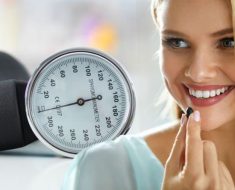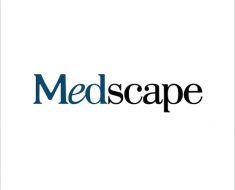In this article, we look at what vitamins and other nutrients a woman needs at different stages in her life.
Recommended dietary allowances (RDA)

In the United States, the Food and Nutrition Board (FNB) provide guidance on nutrition and set the RDAs and adequate intakes (AIs) for vitamins.
The FNB set the RDA for a specific vitamin when there is enough scientific evidence to establish a daily dietary intake.
This happens when the vitamin is shown to meet the nutritional requirement of 97 to 98 percent of healthy people within a particular group.
If the FNB do not have sufficient scientific evidence to establish an RDA, they usually recommend an AI instead.
The table below, adapted from the FNB, lists the RDAs for the different vitamins for women aged between 9 and 50 years. AIs have an asterisk (*). Vitamin amounts are in milligrams (mg) and micrograms (mcg).
The table below, adapted from the FNB, lists the RDAs for the different vitamins for females aged 51 or older, as well as for those who are pregnant or breastfeeding. Again, an asterisk (*) marks the AIs. Vitamin amounts are in milligrams (mg) and micrograms (mcg).

Iodine
Iodine is crucial for the healthy development of a baby’s brain during pregnancy.
According to a 2012 national survey by the Centers for Disease Control and Prevention (CDC), women between the ages of 20 and 39 years had lower iodine levels than any other age group in the study.
Women in this age group are the most likely to become pregnant. The RDA for iodine for this group is 150 mcg.
Folate
Folic acid is essential for women during the years that they can reproduce because it reduces the risk of birth abnormalities, especially those involving the spine and brain. Folate also helps create red blood cells and aids in protein digestion.
The CDC recommend that pregnant women, and those who may become pregnant, take folic acid supplements. Women 18 and older who are not pregnant need 400 mcg per day.
Women aged 41 to 50 years
Iron
Women who are in perimenopause are at a higher risk of developing iron deficiencies. Iron is a mineral that is essential for reproductive organs and functions. Iron is also important for:
- energy production
- wound-healing
- immune function
- red blood cell formation
- growth and development
The RDA for iron for women in this age group is 18 mg.
Calcium and vitamin D
As women age, they are at increased risk of developing osteoporosis, which is a condition that weakens bones and increases the risk of fractures. Calcium and vitamin D are essential for good bone health.
The RDA of vitamin D for adult women under 70 years of age is 15 mcg. The RDA for calcium is 1,000 mg for women aged 19 to 50 years.
Women aged 51 to 60 years
Vitamin B-6, B-12, and folic acid
Women aged over 50 years need more B vitamins than other women. B vitamins are crucial to overall health.
Vitamin B-6 is involved in over 100 known enzyme reactions and is essential to immune health. Vitamin B-6, B-12, and folic acid also help with:
- red blood cell production
- energy production
- protein metabolism
- cognitive development
- nervous system function
Research also indicates B vitamins may lower the risk of many conditions that impact older women more frequently.
According to the FNB, 10 to 30 percent of older people do not get enough Vitamin B-12 because they cannot absorb it properly. The FNB recommend that people over the age of 50 years should take supplements or consume more foods fortified with vitamin B-12 to meet their RDA.
Calcium and vitamin D
Due to changes in hormone levels, women who are in postmenopause are at even greater risk of developing osteoporosis.
In a 2013 study that followed 36,282 postmenopausal women in the U.S. over 7 years, researchers concluded that the women who took calcium and vitamin D supplements might have reduced their risk of hip fracture.
The RDA of calcium is 1,200 mg for women over the age of 50 years.
Women aged over 70 years
Vitamin D
Vitamin D is essential to bone health and helps maintain muscle mass. As people age, they naturally begin to lose bone and muscle mass. People over the age of 70 need more vitamin D than younger people.
Vitamins for different dietary needs
Many women also have unique dietary requirements depending on their activity levels, medical conditions, or lifestyle choices.
Women who are very active

Women who exercise a lot or have physically demanding jobs will generally need to consume more nutrients to stay healthy.
Research suggests that female athletes and those with active military jobs are at a higher risk of becoming deficient in vitamin D and calcium, which can lead to weakened bones and increased risk of injury.
Very active women may also be a greater risk of iron deficiency.
Very physically active women should speak with a doctor or dietitian about tailoring diet and supplement intake to meet their specific needs.
Women with heavy periods
Excessive blood loss from heavy periods can lead to iron deficiency and anemia. Women who regularly experience heavy periods may benefit from eating more iron-rich foods or taking supplements.
Anyone who is concerned about their periods or heavy menstrual bleeding should speak to a doctor.
Pregnancy and breastfeeding
Diet and nutrition are important for pregnancy and breastfeeding. Generally, women who are pregnant or breastfeeding have higher requirements for most vitamins and minerals, including:
- Iodine, which is important for healthy brain development. The RDA is 220 mcg for pregnant women and 290 mcg for those who are breastfeeding.
- Folic acid, which helps reduce the risk of birth abnormalities. The RDA is 600 mcg for pregnant women and 500 mcg for those who are breastfeeding

Vegan or vegetarian diet
To fully meet their nutritional requirements, vegans and vegetarians need to consider a few things when planning meals.
For example, vitamin B-12 is generally only found naturally in animal products. So, to meet their RDA, vegans and vegetarians may need to take supplements or eat foods fortified with B-12, such as some breakfast cereals and milk alternatives.
Vegans and vegetarians may also need to ensure they are getting enough protein, calcium, iron, and zinc. The best way to do this to eat a balanced and varied diet that includes foods, such as:
- beans, peas, and legumes
- whole grains
- nuts and seeds
- soy products
- broccoli
- dark green, leafy vegetables, such as spinach, kale, and mustard greens
- fortified breakfast cereals, drinks, and milk alternatives
- nutritional yeast products
Mexican-American and Black-American women
A 2012 national survey from the CDC found that Mexican-American and non-Hispanic Black-American women were twice as likely to have low levels of iron than non-Hispanic white women. Women from these groups may benefit from eating more iron-rich foods or taking supplements.

What to eat?
Important nutrients for women and good sources of them include:
- Folic acid: spinach, rice, avocado, broccoli, oranges, asparagus, and fortified breakfast cereals
- Iodine: seafood, seaweed, eggs, grain products, iodized salt, and low-fat dairy products
- Vitamin D: fatty fishes, egg yolks, mushrooms, liver, and also from sun exposure
- Iron: red meat, seafood, poultry, spinach, lentils, and white beans
- Calcium: dairy products, fortified milk alternatives and juices, sardines, salmon, tofu, and kale
Takeaway
A woman’s nutritional needs can vary during different stages of her life and according to activity levels, medical conditions, and lifestyle choices.
Generally, the best way for a person to meet their nutritional needs is to eat a balanced and healthful diet.
Anyone who is concerned that they may not be getting enough vitamins and minerals should speak to a doctor or dietitian.
Source: Read Full Article





